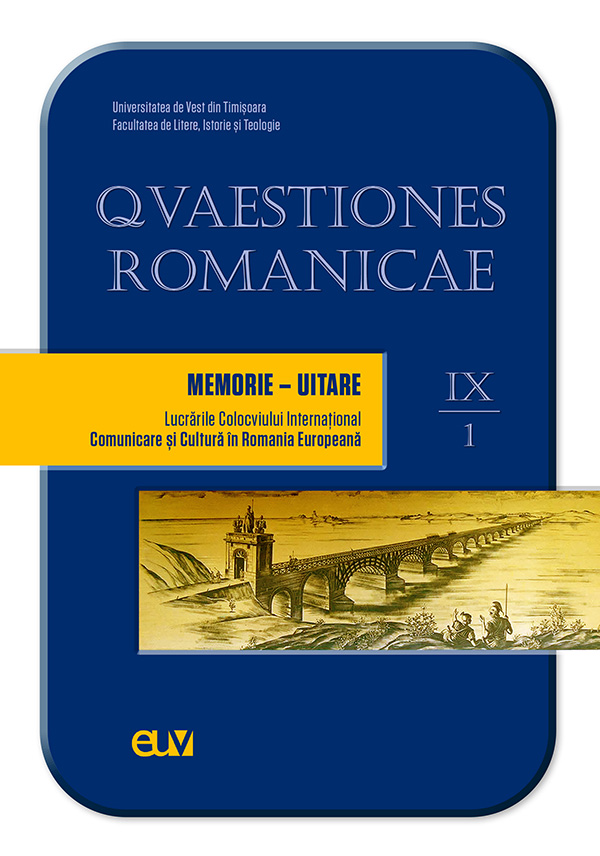L’oblio dei ‘potenti’. Vite parallele di alcuni personaggi in genere poco ricordati dalla storiografia
Abstract: (Oblivion of ‘Powerful’. Parallel Lives of Some Characters Generally Little Remembered by Historiography) Some personages, wrongly defined as ‘minors’, have been neglected or even forgotten by historiography. The Authors therefore considered it appropriate to ‘rehabilitate’ some of them, belonging to the vast world of historical and cultural relations between Italy, Romania and Hungary. They are the Florentine Philip Scolari (1369–1426), alias Pippo Spano, the Venetian Lodovico Gritti (about 1480–1534) and the Dalmatian George Martinuzzi Utyeszenics (1482–1551), better known as Brother George. Philip Scolari from apprentice-merchant became the most trusted adviser of King Sigismund of Luxembourg, rapidly climbing the Hungarian social ladder: he became high treasurer, governor of eight counties, ban of Severin; he distinguished himself as a military leader in the wars against the Turks, the Hussites and the Venetians; he was also a distinguished patron of arts. Lodovico Gritti was the natural son of the Venetian doge Andrea, born in Constantinople to a concubine of his father. He distinguished himself on the Bosphorus for the high profits made from his entrepreneurial activity, so much so that he became one of the richest and most important men in Constantinople. Having entered the court of the king of Hungary John Szapolyai, thanks to his close friendship with the sultan and the grand vizier, he became governor, high treasurer, count of Maramureș, commander-in-chief of Hungarian army. By virtue of his enormous political, military and financial power, he transformed himself into an actual despotic prince. He was therefore beheaded in Mediaş during a revolt of Transylvanian people. George Martinuzzi was bishop of Oradea, primate of Hungary, cardinal, high treasurer, supreme judge and military commander, royal lieutenant in Transylvania. He was a brilliant, cunning, ambitious and powerful character. Accused of connivance with the Turk, he ended up barbarously murdered in his castle of Vinţu de Jos.
Keywords: Philip Scolari, Pippo Spano, Lodovico Gritti, George Martinuzzi Utyeszenics, Transylvania.
Riassunto: Alcuni personaggi, a torto definiti ‘minori’, sono stati trascurati o addirittura dimenticati dalla storiografia. Gli Autori hanno pertanto ritenuto opportuno ‘riabilitare’ alcuni di essi, appartenenti al vasto mondo delle relazioni storiche e culturali tra Italia, Romania e Ungheria. Essi sono il fiorentino Filippo Scolari (1369–1426), il veneziano Ludovico Gritti (ca.1480–1534) e il dalmata Giorgio Martinuzzi Utyeszenics (1482–1551), meglio conosciuto come Frate Giorgio. Filippo Scolari, alias Pippo Spano, da apprendista-mercante divenne fidatissimo consigliere di Sigismondo di Lussemburgo salendo rapidamente nella scala sociale ungherese: fu sommo tesoriere, governatore di otto contee, bano di Szörény (Severin); si distinse come condottiero militare nelle guerre contro i turchi, gli ussiti e i veneziani; fu anche un insigne patrono delle arti. Ludovico Gritti era il figlio naturale del doge veneziano Andrea, nato a Costantinopoli da una concubina del padre. Si distinse sul Bosforo per gli alti profitti ricavati dalla sua attività mercantile, tanto da diventare uno degli uomini più ricchi e importanti di Costantinopoli. Entrato alla corte del re d’Ungheria Giovanni Zápolya, grazie alla sua stretta amicizia col sultano e col gran visir, divenne governatore, sommo tesoriere, conte di Máramaros (Maramureș), comandante generale dell’esercito ungherese. In virtù del suo enorme potere politico, militare e finanziario, si trasformò però in un vero principe dispotico. Finì pertanto decapitato a Medgyes (Mediaş) durante una rivolta del popolo transilvano. Giorgio Martinuzzi fu vescovo di Várad (Oradea), primate d’Ungheria, cardinale, sommo tesoriere, giudice supremo e comandante militare, luogotenente regio in Transilvania. Fu un personaggio geniale, astuto, ambizioso e potente. Accusato di connivenza col Turco, finì barbaramente assassinato nel suo castello di Alvinc (Vinţu de Jos).
Parole chiave: Filippo Scolari, Pippo Spano, Ludovico Gritti, Giorgio Martinuzzi Utyeszenics, Transilvania.
